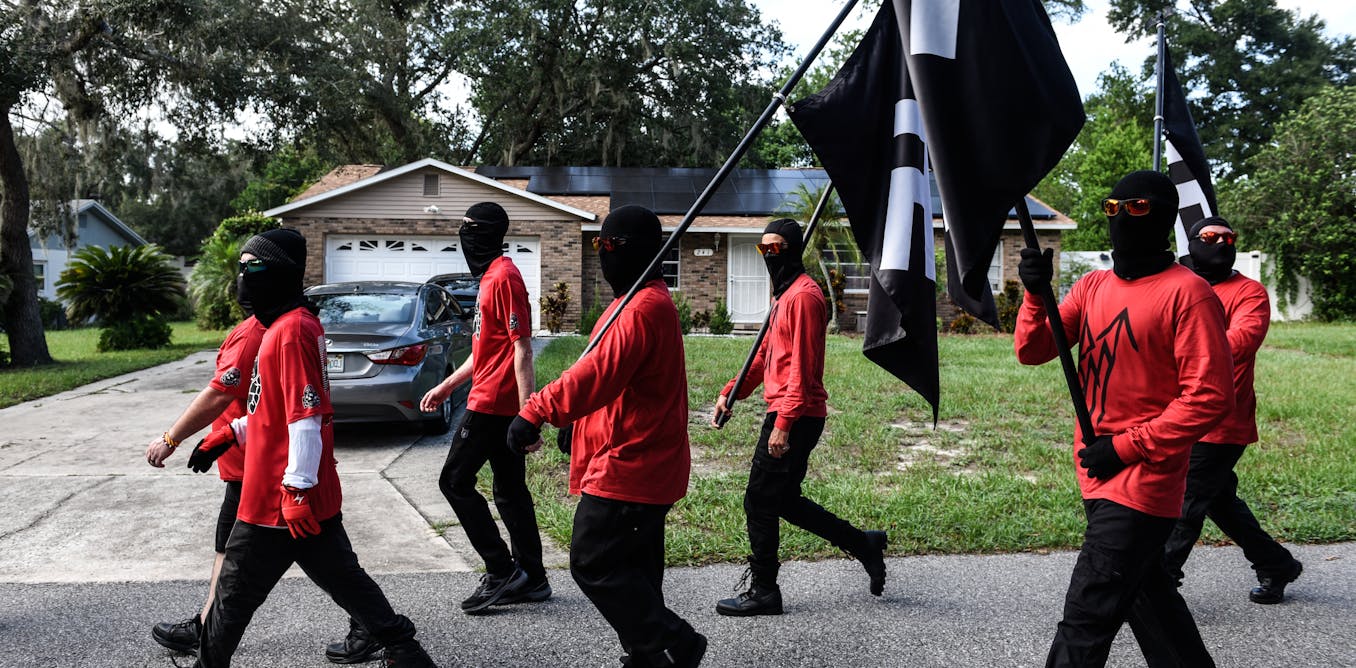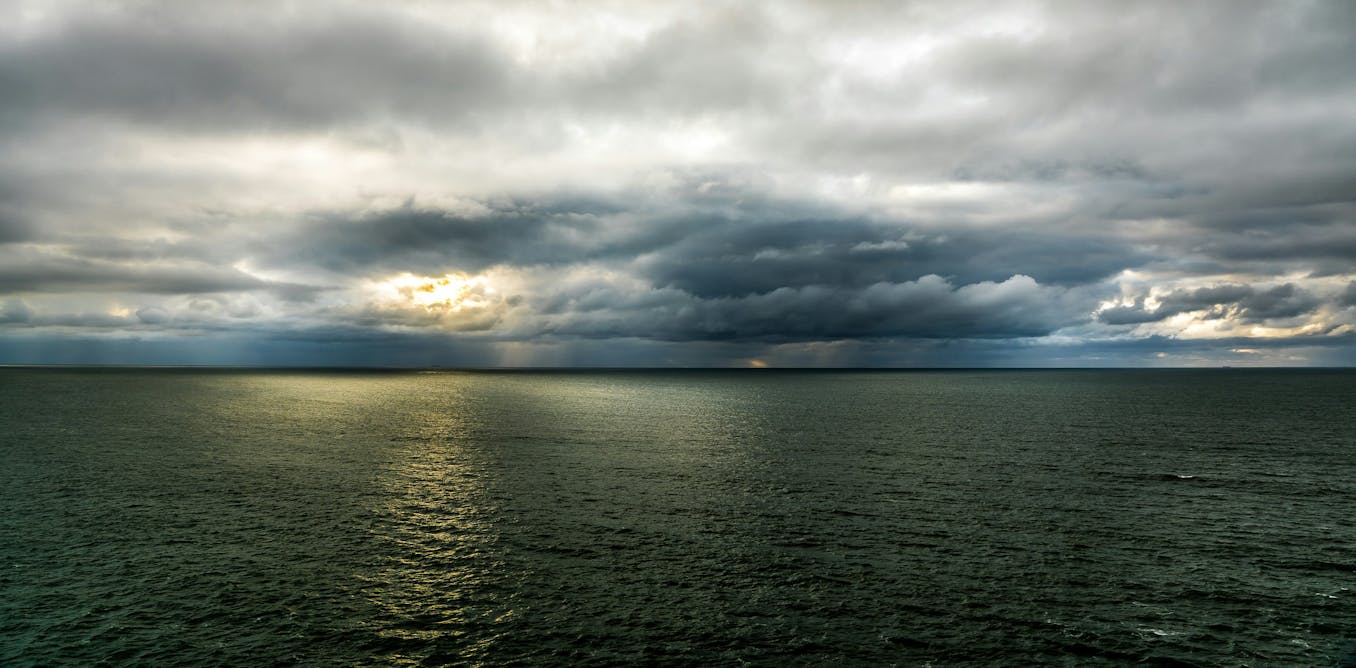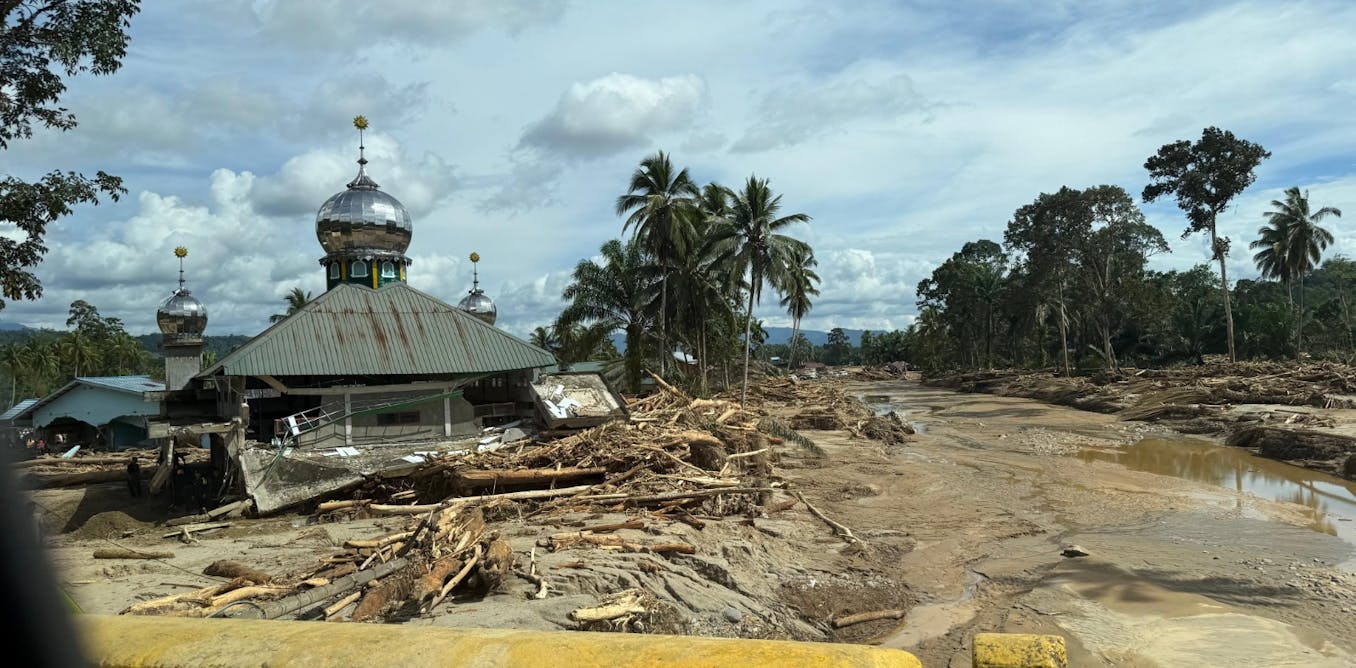They are young, they love music and they are living in a time of war. Russia’s attack on Ukraine has radically changed the lives of people like Dasha, Vika and Sasha. These three left their normal jobs to rebuild their homeland as part of the “Repair Together” initiative.
Repair Together was founded in May 2022 by four creative urbanites from the Kyiv techno scene. Unlike many other aid initiatives, this one combines reconstruction with community, creativity and music. In the summer of 2022, their “reconstruction raves” drew hundreds of volunteers from around the world to clean up and rebuild destroyed villages in northern Ukraine.
But the longer the war lasts and the colder the temperatures get, the harder it gets to maintain the group’s cohesion. Support also threatens to wane. As temperatures drop, people tend to go to indoor techno parties — not ones held on open-air construction sites. As winter approaches, fewer and fewer volunteers sign up for construction work, forcing the foursome to pause most reconstruction projects until it gets warmer, again.
But Dasha and Vika, two of the organizers of Repair Together, want to continue building a house just before spring. Because they know that if they don’t give the family back their home as soon as possible, in all likelihood, no one will. “All hopes are just with NGOs, like ours. Because the state can’t help, it’s at war. It does not yet have the capacity to build private homes,” Vika knows. To attract helpers to their building project even without the “building raves,” the two young women are coming up with creative and unconventional ideas for their social media channels. “We want to show: We’re not only building, but also spending a good and exciting time in the village,” says Dasha. But given the biting cold, how many participants will ultimately sign up?
#documentary #dwdocumentary #Kyiv #techno
______
DW Documentary (English): https://www.youtube.com/dwdocumentary
DW Documental (Spanish): https://www.youtube.com/dwdocumental
DW Documentary وثائقية دي دبليو (Arabic): https://www.youtube.com/dwdocarabia
DW Doku (German): https://www.youtube.com/dwdoku
DW Documentary हिन्दी (Hindi): https://www.youtube.com/dwdochindi
Sasha, Dasha and Vika drive to Lukashivka in northern Ukraine nearly every weekend ? to help rebuild it. Early in the war, the village was occupied by Russian forces and now lies in ruins. If it weren’t for these young people, we’d be left with nothing. The group is part of Kyiv’s techno scene.
Here, they’re channeling their creativity into construction. The worst thing that can happen to a person in war is to lose optimism, because then you die inside. Can the team, in spite of war and the cold, give the villagers back their home?
Air raid sirens were blaring here in Kyiv just a few hours ago, but already, people are back on the dance floor. Dancing too, is the team from “Repair Together”, winding down the day. There’s nothing wrong with partying during war, says Sasha Kuchinski. It doesn’t mean that we have forgotten the war.
We think about it every day. But the war is not our life. It shouldn’t completely define our lives. If you only see and think about the horror everywhere, at some point your own life will become nothing but horror. But we are here to live and to help others live.
Helping others is not on the team’s agenda until tomorrow. Sasha and his girlfriend Dasha continue the party ? at home. That’s how they get around the curfew. After Russia launched its invasion, Dasha Kosiakova took up DJ-ing. The war has played a role for me in the sense that
I now pursue everything I’ve always wanted to do, like dancing and being a DJ. I now know I can’t put it off forever. At some point, the war and the fear of death made me realize I can no longer wait. You have to do it here and now
And not wait for the perfect moment, because that will never come. For Dasha, the war is bringing back memories of 2014, when she still lived in Luhansk in eastern Ukraine. She partied back then, too, even as gunshots rang out just outside her open window. My dad said to my uncle:
“Why did you open the window? Close it, close it!” When my uncle closed the window again, I thought, “Ok, everything’s fine.” I realized that we can’t control what’s happening outside right now, but we can decide whether to worry or not. We can at least try to be happy,
Even if a rocket is about to come kill us all. We may die, but we die happy, not just waiting around for death. The next morning, there’s another air raid warning. And at home, what’s left of last night’s party… Dasha and Sasha are running late.
They’re heading north today, where a village awaits them. After Russia launched its invasion in February of 2022, Dasha quit her job in the marketing department of an IT firm. She helped start a new venture, “Repair Together”, which manages privately-funded reconstruction projects. Sasha and two other friends are part of the effort as well.
Before launching “Repair Together”, Sasha worked as a creative director. Repair Together’s motto: “Community and creativity.” In the summer of 2022, the team organized “construction raves” in northern Ukraine. Their videos quickly went viral and inspired hundreds of helpers from all over the world to travel to the villages almost every weekend.
The raves soon attracted the attention of reporters, influencers and international donors. We dropped our phone there at the end… At some point after organizing these raves, we noticed that the volunteers feel much freer and better at the end of their work day. They’re smiling again, having fun, playing guitar.
It felt, for a moment, like life was returning to normal, like everything was good again. Vika Afanasyeva is the third member of the team. Before the war, the 28-year-old worked for other NGOs. Back then, she was mostly behind a desk. Now she’s constantly on the move, traveling from village to village.
I think I visit the villages of Lukashivka, Yahidne and Ivanivka more often than my grandma’s village. We’ve been going there pretty much every weekend, from May until September of 2022. Now that it’s colder and there are fewer volunteers coming forward, things have slowed down. But the villagers still depend on the team’s help,
Because the state isn’t able to rebuild private homes right now. We have a lot of responsibility. And I really want to help. If we weren’t around, things would be very bad. Dasha, Sasha and Vika have met up in the center of Kyiv and are ready to leave.
They are accompanied by two friends who are there to film them. The teams knows having a vibrant internet presence is important. Dasha, Sasha and Vika may be on their own this time. So far, no one else has come forward to help rebuild Lukashivka. They arrive almost three hours later. In early March 2022,
Russian soldiers occupied the village of less than 500 people. Ukrainian forces liberated the village three weeks later, but the fighting had already killed many people and destroyed most of the houses and cars. Since then, many here no longer have a home. Come in, come in, my dears!
The team is being hosted by Nadja Ivanovna, known as “Grandma Nadja.” They’ve been staying with her since they started work in the village. Is that a snowsuit? Yes, imagine that: a used snowsuit. Grandma Nadja pulled it out of a relief convoy for Vika. Wow, stylish… Here the team can rest up and recharge.
Pour some vodka: here and there. Yep, got it! Did you pour vodka for everyone? Come on, have everything on the table: bacon, onions, sausage. Try the salad and the cucumbers… The team met Grandma Nadja while working here in the summer. I wondered where these “golden kids” came from.
Nobody had helped us here in the village before. Vika, hand out the forks! And suddenly these wonderful kids show up, running around here in the heat, rebuilding things. When I saw them in the summer, I went down to the cellar and got juice and pickles for them. Pickles are good for the soul!
Even around the dinner table, the war is not far from mind. The fighting destroyed the only doctor’s office in the village. You have no-one with medical training? No, nobody. But I sometimes go to the people myself, to the grannies, to give them injections. Seriously? Seriously. I inject antibiotics, everything.
I know how to dilute the drugs properly, I know where to prick. But I don’t inject intravenously. Other than that, I administer all the shots. There still are no volunteers for tomorrow. Let’s see if we can get some work done, whether anyone shows up at all, I say we check again tomorrow.
The next day begins with a prayer in a local church. It’s been destroyed, but the villagers still come here every Saturday. No one has come forward to help at the construction site. So far, there are only four rows of bricks. Vika and Dasha want to have the house completely finished in three months.
Time to get to work. But right away, they run into a problem. The construction manager moved the concrete mixer to another property and didn’t let us know. Now we have to mix it by hand. The construction manager is not in the village today and can’t help.
I’m pretending I’m spreading frosting on a cake. In the summer, these work trips looked very different. The team was joined by hundreds of volunteers. Together, they cleaned up more than 120 properties, renovated twenty and built seven homes. That’s just not possible right now, it’s too cold.
Besides, Vika and Dasha want only women to work on this particular site. They want to teach women how to build houses. They say men on construction sites often don’t take women seriously. The men, our help and support! Maybe you can mix the cement? Nah, he’s not allowed. He should entertain us.
Okay, then entertain us! We like telling classic sexist jokes. That women have a fit if they break a fingernail, for example. People usually think it’s cute that we work in construction, but they assume we’ll end up asking the men for help. Yes, like: enough posing with concrete blocks. Enough already!
Dasha and Vika hope this project will show construction managers these women mean business. Time to call it quits for today. The team is thinking about how they can attract more helpers. We’re not just here to build things, but also to spend time in the village. People often join us because of that.
It’s an unusual experience. And because we share our experience in creative ways, they think it’s fun. It’s not just that you come here, build, and then leave. Honestly, I think some people are just up for hanging out with us, too. That’s why they sign up to work. Creating community and having fun…
All the more important in times of war. The worst thing that can happen to a person in war is to lose optimism, because then you die inside. So, come see us! The war’s damage is visible everywhere. By some miracle, Grandma Nadja’s house was spared during the fighting.
A tank shell hit only the shed in her yard. Still, she’s afraid of another attack. Of course, when I go to bed, I’m always afraid I won’t survive the night because something will come flying at me again. A splinter flew in here. And more right here. This door won’t close either.
And there were six big holes right here. This door is new. Vika, Dasha and the group brought it from Kyiv. During the occupation, Grandma Nadja tried to hide her children and grandchildren in her cellar. She says Russian soldiers found them and led them outside.
They all knelt in a row here, on the shards of the destroyed windows. My grandchildren, my children. The Russians cut my oldest grandson Dima’s face with a knife. And the next morning he was taken to the church to be shot. His mother, my daughter, was screaming.
She had a stroke at the age of 37. She’s been going from doctor to doctor for half a year, but has not received proper treatment. Since then, she can’t feel her whole right side. Her face is all distorted. And my grandson’s hair has turned grey from the terrifying experience.
She says her grandson was spared because he was underage at that time. The team knows these stories well and feels a sense responsibility for the people here. But still… no one else has signed up to help. No, nobody new. I suggest the two of us just continue working.
It’s time to do some filming: to keep the attention of their business partners, donors and volunteers, the team needs to stay visible. The best way to do that is with creative videos. First stop: the Church of the Ascension. During the occupation, Russian soldiers stored ammunition, interrogated people and shot suspects here.
The church was almost completely destroyed. When I wave, raise the mic and say, “Church of the Ascension,” okay? Church of the Ascension. The team has long used humor to advertise its work. We are shooting a short intro, about 30 seconds long. It’s an intro for a video
Where we talk about the village where we did most of our work. Last year, officials in Lukashivka gave the team a long list of villagers who had lost their homes. In all, forty-two houses were left in ruins. The team has been able to rebuild six of them, getting most of the building materials
From donors, business partners and foundations. Construction managers oversee the effort and teach volunteers what to do. But sometimes, it’s all just a bit too much… We all get really down sometimes. I don’t know if you know that expression. Sometimes we just can’t take it anymore. But when I hear the villagers’ stories
And know that I can help them, I get inspired. After all, I can somehow organize my own life, but the villagers can’t. Especially the elderly. Good evening! Hello, sorry for the delay. I’ve called you so many times… Olga Ivanovna’s house burned down during the fighting. She barely escaped with her life.
She’s about to move into this new house with her grandson and daughter. Ah, I see you’ve already set up a kitchen? If it weren’t for these young people, we’d be left with nothing. When we cleaned up everything, we turned off the gas and covered everything with a tarp,
Because we thought no one would lay gas lines anymore. No one would help rebuild. We can’t do that sort of work on our own. But then this miracle happened, that none of us had expected. It’s just Dasha and Vika working again today. They stop by a supermarket to stock up.
The cashier is Nina. She’s supposed to move into the house as soon as it’s finished. Can I pay with credit card? Yeah, sure! The Russians burned down my house and my car. But we still managed to get away and hide in the basement. We lost everything. Everything: the house and everything inside it.
Except for the old sheds in the yard, everything is gone. We took out a home loan for 15,000 dollars. I’m slowly paying that off. But as soon as we get a new house, I’ll sell the current one. Then I’ll sleep easy again and my kids won’t have to live with debt.
That’s why the house has to be finished as soon as possible. The women know this work requires perseverance. And the next attack could destroy it all again. We know the war could last several more years. If we have to rebuild everything again, we’ll do it. We know how to do it now.
Time to say farewell to Grandma Nadja, at least for a few days. The team plans to return to this, their home away from home, next weekend. Thank you! Living in war is hard. And no matter how loud the music plays… Death and destruction are never far away. But that won’t stop the team
From helping their friends in the villages rebuild.
Video “Kyiv's techno scene and Russia's war | DW Documentary” was uploaded on 11/05/2023 by DW Documentary Youtube channel.
































